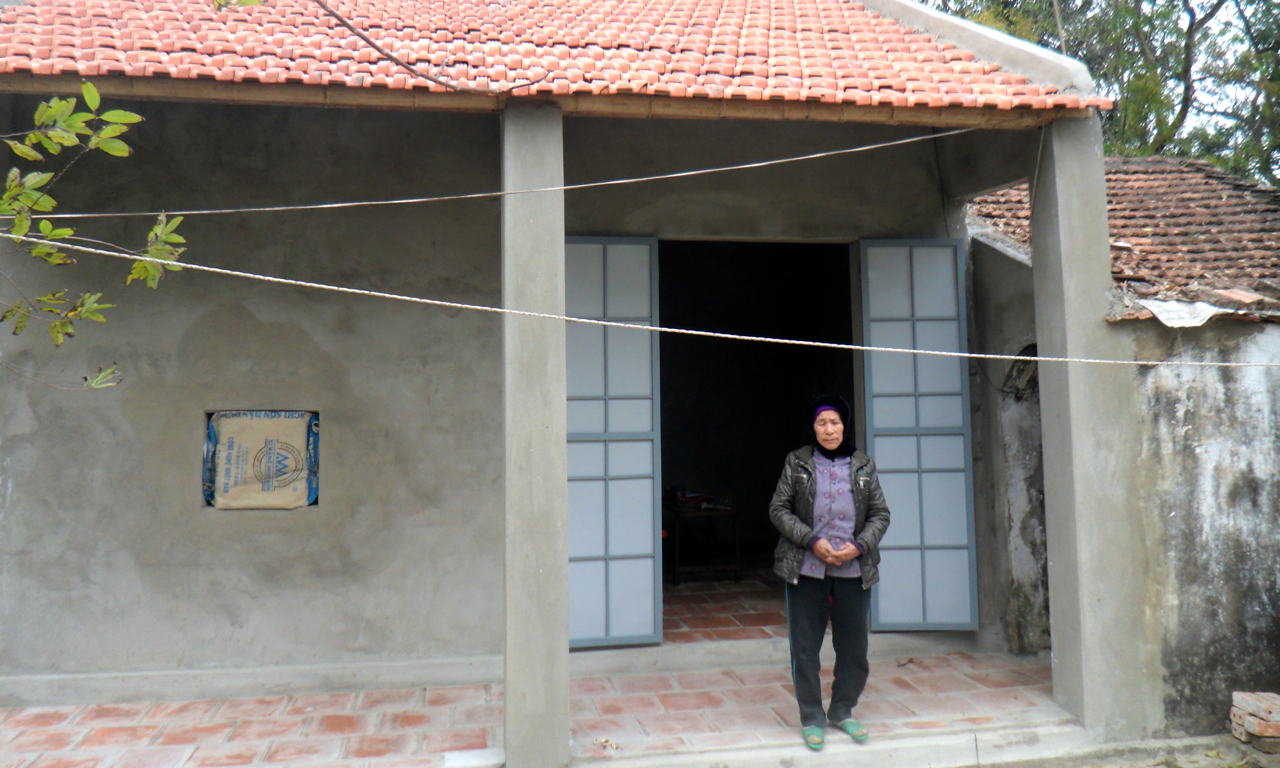Never too late

Story by Cao Phan Viet, World Vision Vietnam
Writen by Tran My Hang, World Vision Vietnam
Only one corner of her old home was left untouched after the typhoon tore through Vietnam’s central Thanh Hoa province, the rest coming crashing down.
“I was so scared the house would fall on me. All my stuff was drenched,” recalls Nguyen Thi Bon of the huge storm three years before.
A mother of six, the 74-year-old lives alone after three of her children died, one to disease and two in accidents, and the rest moved south in search of work.
With few savings and nobody to rely on as her children hadn’t contacted her for years, Ms Bon had no choice but to continue living in the intact corner of her house. A good night’s sleep was impossible, though, as she lived with the constant fear that the remaining structure would collapse, crushing her in her bed.
Realising the elderly woman’s dangerous situation, World Vision decided to help construct a new home for her in 2014, as part of its disaster campaign in Thanh Hoa province, by providing construction materials worth over one thousand US dollars.
And after contributing nearly all of her 400-dollar life savings, the foundations were laid for the new concrete house, with the woman’s neighbours helping with the construction.
“I could never have dreamed of having such a home because I’m too old and frail to work,” Ms Bon says. “Every night I stayed in my old place, I felt unsafe and couldn’t sleep well, especially when it rained.”
She adds: “I won’t have to shelter in my neighbours’ homes anymore during storms, so I want to thank World Vision and my wonderful neighbours for building my house.”
Along with over one thousand vulnerable households living in Hoang Hoa district, Thanh Hoa province, Ms Bon has taken part in climate change adaption training and learned how to prepare for potential disasters to reduce their impact.
A key strategy is for each household to draft an action plan to establish a clear procedure of what to do when a storm is approaching and how to stay safe when it arrives.
Ms Bon says: “Although I can’t read or write [due to poor eyesight], I’ve still made my disaster plan thanks to my neighbours’ help. Now I feel more confident; I know what to do before, during and after a disaster to keep safe.
“Before a storm, I need to listen to news of the storm’s path on the radio or from the village’s public address system.
“I also need to store drinking water and food, and pack some stuff in case of evacuation. I may be old, but now I can deal with storms on my own.”
The housing assistance and training Ms Bon received forms part of World Vision’s ‘Central Areas of Thanh Hoa Province Resilient to Natural Disasters’ (CATREND) project in Vietnam.
